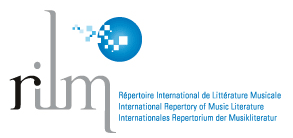Jean Baptiste Lully ¿arquitecto de la tonalidad?
Resumen
El trabajo se propone analizar la tesis, hoy sostenida por algunos musicólogos franceses, de que Lully habría fundado en su música el concepto de tonalidad. Para ello, se toman en consideración un número reducido de casos dentro de los géneros representados en la última época del compositor y que éste ha contribuido a crear: la tragedia lírica y el gran motete. Aunque no se pueda dar como generalmente válida una definición de tonalidad, ciertas nociones como centro tonal, proceso tonal y modulación están implicadas en ella, así como la relación entre estructura musical y dirección armónica de cierto tipo. Un recorrido por un número de arias solistas de las óperas permite reconocer, en diversos esquemas formales, la existencia de una unidad tonal. La misma se verifica en el interior de un sistema que reconoce modos mayores y menores. El análisis macroestructural, sucesión de escenas y actos, revela que la elección tonal ocurre en atención al carácter de los modos y de la existencia afectiva del texto y la situación escénica. No se advierte, en cambio, que haya una consecuente vinculación entre macroestructura y sistema tonal en el examen de la tragedia lírica Atys. El análisis de dos motetes permite advertir que cuando Lully se sujeta al círculo de quintas en el enlace de los acordes parece comportarse "tonalmente", pero que esta conducta está lejos de ser consecuente. Tampoco se observa, en la sucesión acórdica, la aplicación de un principio de jerarquía, ni existe un coherente tratamiento del ritmo armónico.
Descargas
Descargas
Publicado
Número
Sección
Licencia
Derechos de autor 2018 Héctor E. Rubio

Esta obra está bajo una licencia internacional Creative Commons Atribución-NoComercial 4.0.
Atribución/Reconocimiento-NoComercial 4.0 Internacional
https://creativecommons.org/licenses/by-nc/4.0/
Usted es libre de:
- Compartir — copiar y redistribuir el material en cualquier medio o formato.
- Adaptar — remezclar, transformar y construir a partir del material.
- La licenciante no puede revocar estas libertades en tanto usted siga los términos de la licencia
Bajo los siguientes términos:
- Atribución — Usted debe dar crédito de manera adecuada, brindar un enlace a la licencia, e indicar si se han realizado cambios. Puede hacerlo en cualquier forma razonable, pero no de forma tal que sugiera que usted o su uso tienen el apoyo de la licenciante.
- No Comercial — Usted no puede hacer uso del material con propósitos comerciales.
- No hay restricciones adicionales — No puede aplicar términos legales ni medidas tecnológicas que restrinjan legalmente a otras a hacer cualquier uso permitido por la licencia.
Avisos:
No tiene que cumplir con la licencia para elementos del material en el dominio público o cuando su uso esté permitido por una excepción o limitación aplicable.
No se dan garantías. La licencia podría no darle todos los permisos que necesita para el uso que tenga previsto. Por ejemplo, otros derechos como publicidad, privacidad, o derechos morales pueden limitar la forma en que utilice el material.






